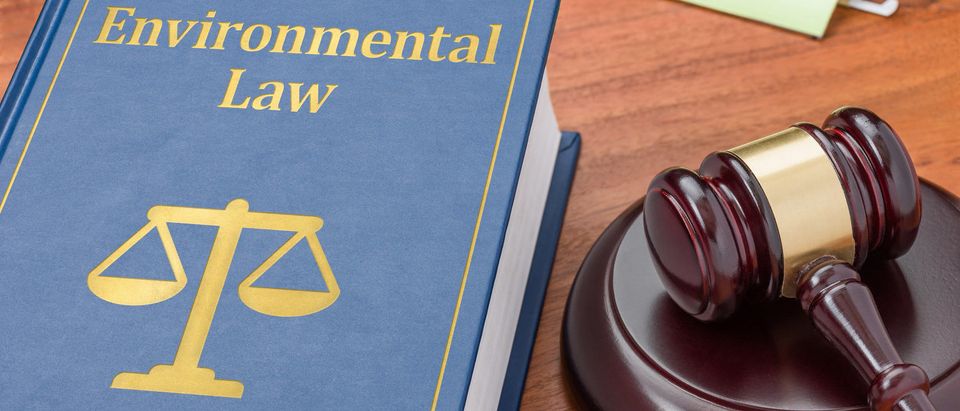A Nevada-based mining company has been struggling to regain its footing after the Guatemalan Supreme Court suspended its license to operate one of the world’s largest silver mines over the company’s failure to consult indigenous peoples allegedly living in the area.
Tahoe Resources faces a fundamental problem, though — the Guatemalan government’s latest census shows no indigenous people living in the San Rafael community where the mine is located.
The mining company says it did consult with the few indigenous Xinca who do live in the region, but that wasn’t considered by the country’s high court. In July, justices ruled in favor of environmental activists suing the Guatemalan government to halt operations at the Escobal mine.
Tahoe Resource’s stock price fell about 40 percent after the July 5 ruling, according to Bloomberg, and the company said a three-month suspension of their operating license could cost Guatemala $9 million in royalty payments and tax revenue. Tahoe will also defer spending $12 million to ramp up mining operations.
“We are extremely disappointed in the Court’s ruling suspending the license because we believe that there are no indigenous communities affected by Escobal’s operations,” Tahoe CEO Ron Clayton said in a statement on the court ruling.
Should the suspension go on long enough to threaten the viability of the Escobal silver mine, the livelihoods of the 7,600 workers and their families tied to the mine’s operations would be at risk. A handful of Guatemalan-born Tahoe employees actually migrated back to their home country from the U.S. to work at Escobal.
“Escobal is our flagship mine which has been designed and operated to meet the highest environmental standards and we will make every effort to remove any suspension and bring Escobal back into operation as soon as possible,” Clayton said. “We remain committed to protecting our employees’ livelihoods, as well as those livelihoods of the Company’s suppliers and the thousands of Guatemalan families that benefit from the responsible operation of the Escobal mine.”
It was a major victory for environmentalists who have been trying to shut the mine down for years, and the court battle is expected to go on for months. Tahoe Resources will continue the court battle against the anti-mining coalition CALAS to get the mine re-opened.
The mining permit suspension is only temporary, but environmentalists are determined to make sure the mine is shut down for good. CALAS filed suit against Guatemala’s Ministry of Energy and Mines in May, alleging they did not properly consult with the Xinca community before approving the Escobal mine’s 25-year license in 2013. Tahoe Resources was not party to the suit prior to the July court ruling, but now the company can defend itself in court.
“Investors need to take a closer look at the human rights implications of their investments,” Uwe Gneiting, a policy adviser at Oxfam America, wrote in a blog post after the court ruling.
“Those investment advisors and fund managers who are forward-looking enough to consider the risks associated with corporate disregard for human rights are better equipped to avoid the sorts of precipitous drops in stock price demonstrated in the Tahoe story,” Gneiting wrote. “This case exhibits yet another way in which the socially-responsible investment community can outperform mainstream investors.”
Environmental groups, including United for Mining Justice, Mining Injustice Solidarity Network and the Center for International Environmental Law have also opposed the Escobal mining project.
CALAS did not respond to The Daily Caller News Foundation’s request for comment. Neither did the Center for International Environmental Law.
Activists began organizing against the Escobal mine as early as 2011 when Tahoe Resources began underground operations. Most recently, professional and Guatemalan activists blocked access to the mine earlier this year, claiming the mine was causing seismic activity and contaminating drinking and farm water.
Tensions came to a head in 2013 when Escobal mine security contractors shot seven protesters with rubber bullets. One protester was allegedly shot in the face at close range by mine security. Tahoe Resources quickly fired then head of security Alberto Rotondo after the shooting, and Guatemalan authorities arrested Rotondo as he tried to flee the country.
Guatemalan officials sent soldiers to guard the mine after the incident, the Guardian reported, which largely kept activists at bay.
In January, a Canadian court allowed the seven Guatemalans who were shot to bring a suit against Tahoe Resources. It’s the first time a Canadian court has allowed activists to sue a company for alleged human rights abuses abroad.
Tahoe bought the mine in 2010 from Goldcorp and began commercial operations in 2014. Tahoe’s assessment of the mine found it likely held 389 million ounces of silver along with sizable amounts of gold, lead and zinc.
The mine produced 4 million ounces of silver, 110,000 ounces of gold and$200 million in revenues in the second quarter of 2017, according to Tahoe Resources.
“The impact of the suspension on workers, suppliers and communities in the San Rafael region is concerning,” Edie Hofmeister, Tahoe’s vice president of corporate affairs, told TheDCNF.
“In addition to reduced wages, the local communities aren’t getting royalties, and the social welfare programs that Tahoe has invested in are also at risk,” Hofmeister said. “There is no reason to suspend operations, as the government-to-government consultation required by ILO 169 could occur while the mine keeps running. People shouldn’t lose their jobs over this.”
This story has been updated for clarity and with a statement from Tahoe Resources.
Follow Michael on Twitter and Facebook
All content created by the Daily Caller News Foundation, an independent and nonpartisan newswire service, is available without charge to any legitimate news publisher that can provide a large audience. All republished articles must include our logo, our reporter’s byline and their DCNF affiliation. For any questions about our guidelines or partnering with us, please contact licensing@dailycallernewsfoundation.org.


